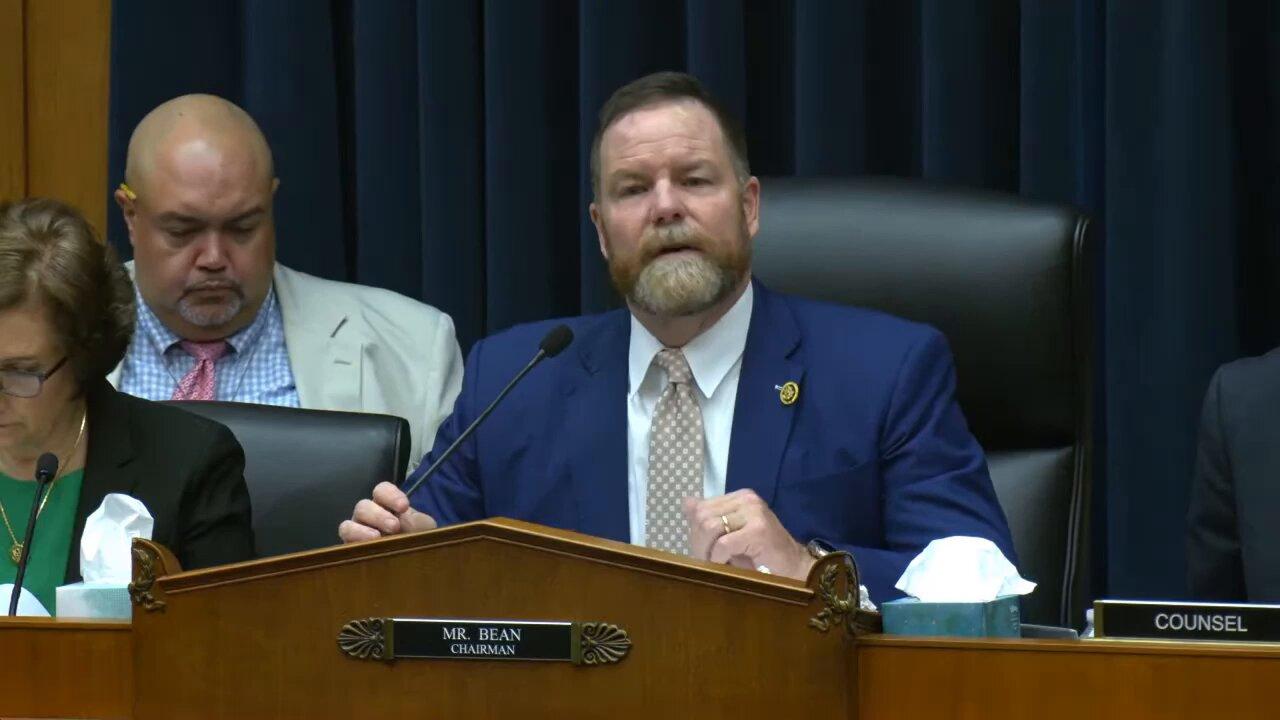
 |

#AaronBean #NaturalizedCitizen #IllegalImmigration #USImmigrationPolicy #CongressionalHearing #ImmigrationDebate #LegalImmigration #PersonalTestimonies #ImmigrationReform #PublicPolicy #USPolitics #HumanPerspective #ImmigrationExperience #CitizenVoices #PolicyImplications
Aaron Bean Questions Naturalized Citizen on Illegal Immigration Rates: 'How Does It Make You Feel?'
During a recent congressional hearing, Representative Aaron Bean posed a poignant question to a naturalized citizen, asking how they felt about the current rates of illegal immigration. This inquiry highlights the emotional and personal impact of immigration policies on individuals who have legally navigated the complex process to become U.S. citizens.
The Context of the Inquiry
Aaron Bean's question came amid a broader discussion on immigration policies and their effects on American society. The hearing aimed to address various aspects of immigration, including the challenges faced by naturalized citizens and the impact of illegal immigration on the nation's resources and security.
The Personal Impact
By directing his question to a naturalized citizen, Bean sought to bring a personal perspective to the debate. This individual's journey to citizenship likely involved significant time, effort, and adherence to legal procedures. The contrast between their experience and the influx of illegal immigrants underscores the emotional and psychological dimensions of the immigration issue.

The Broader Debate
Illegal immigration remains a contentious topic in U.S. politics. Proponents of stricter immigration controls argue that illegal immigration strains public resources, undermines the rule of law, and can pose security risks. On the other hand, advocates for more lenient policies emphasize humanitarian concerns, the economic contributions of immigrants, and the need for comprehensive immigration reform.
Personal Testimonies and Policy Implications
Personal testimonies, such as the one elicited by Bean's question, are powerful tools in shaping public opinion and policy. They provide a human face to abstract statistics and help policymakers understand the real-world implications of their decisions.
The Path to Citizenship
Naturalized citizens often have a unique perspective on immigration issues. Having gone through the legal process, they understand the challenges and rewards of becoming an American citizen. Their experiences can offer valuable insights into how immigration policies affect individuals and communities.

Emotional and Ethical Considerations
Bean's question also touches on the emotional and ethical dimensions of immigration policy. How does the experience of legal immigrants compare to the challenges faced by those who enter the country illegally? What responsibilities does the U.S. government have to both groups, and how can it balance competing interests and values?
Moving Forward
The discussion initiated by Bean's question is part of a larger conversation about the future of U.S. immigration policy. As lawmakers debate potential reforms, the voices and experiences of naturalized citizens will be crucial in shaping a fair and effective approach.
Conclusion
Representative Aaron Bean's question to a naturalized citizen during a congressional hearing highlights the personal and emotional aspects of the immigration debate. By focusing on the experiences and feelings of those who have legally navigated the path to citizenship, Bean's inquiry adds a valuable perspective to discussions on illegal immigration and its impact on American society.
Author: GEximius